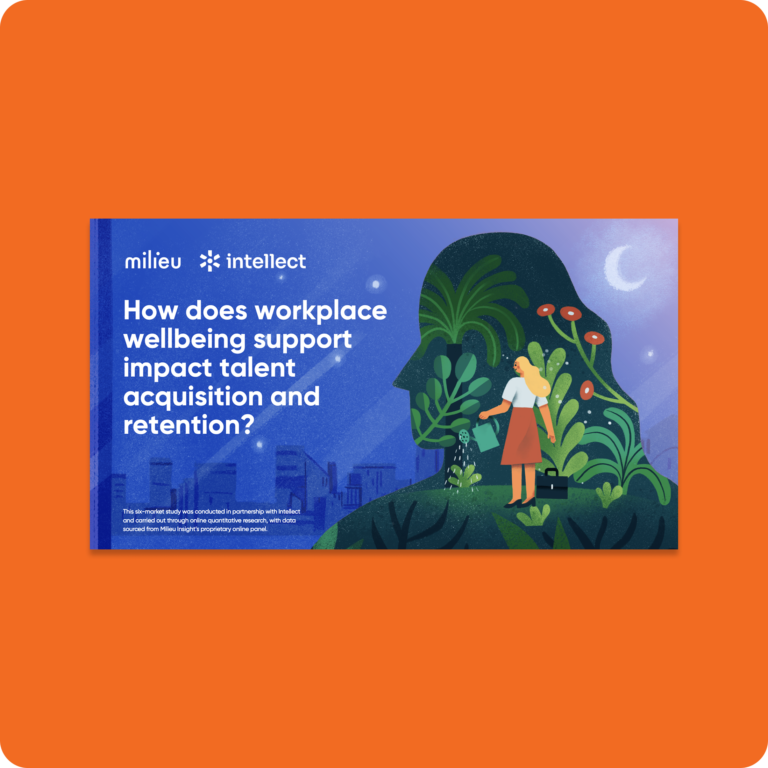How Workplace Wellbeing Shapes Talent Success in Southeast Asia
Co-created by Intellect and Milieu.
1 in 5 employees in Southeast Asia would reject job offers without mental health support. This report, based on 6,000+ responses, explores how wellbeing drives talent attraction, satisfaction, and retention, and what organisations must do to stay competitive.


About This Report
In collaboration with Milieu Insight, Intellect surveyed 6,000 employees across Singapore, Malaysia, Thailand, Vietnam, Indonesia, and the Philippines to understand how perceptions of mental wellbeing are shaping the workplace.
What we discovered goes beyond surface-level satisfaction. While 72% of respondents across Southeast Asia rate their mental health as “good” or “very good,” many also report anxiety, exhaustion, and mental disconnection, especially among junior employees — a group often overlooked.
This report explores:
- The disconnect between self-reported wellbeing and actual burnout
- Why strong internal support beats external perks
- The deal-breaker effect of missing mental health benefits on job offers
Why This Report Matters
Mental health support isn’t a fringe benefit anymore. It’s a core business priority.

1 in 5
employees won’t consider jobs without mental health support unless highly paid

56%
of employees in Thailand would take a pay cut for better wellbeing benefits

6%
turn to HR for help, signalling a clear gap in trust and access
This study reveals that internal leadership, workplace culture, and direct manager support shape not just job satisfaction but also performance and loyalty.
What You’ll Gain
This report explores how mental health shapes job performance and how companies can turn insight into action.
Mental health benefits don’t guarantee impact
Stigma and poor integration mean even valued benefits go unused. It’s not about adding perks; it’s about embedding support into daily culture.

Younger employees face hidden burnout
Junior staff often report “good” wellbeing while quietly battling anxiety and disconnection. This exposes a gap in psychological safety and support.

Culture beats perks
Strong leadership, flexibility, and safe team dynamics matter more than flashy tools. What counts is how support is experienced, not just what’s offered.
Who This Report is Meant For
- People & Culture teams building wellbeing strategies that drive retention
- Employer Brand and Talent leads attracting today’s wellbeing-conscious workforce
- Business and Programme leaders aligning mental health with performance across Southeast Asia
In short: If you care about productivity, retention, or culture, you can’t ignore wellbeing.




